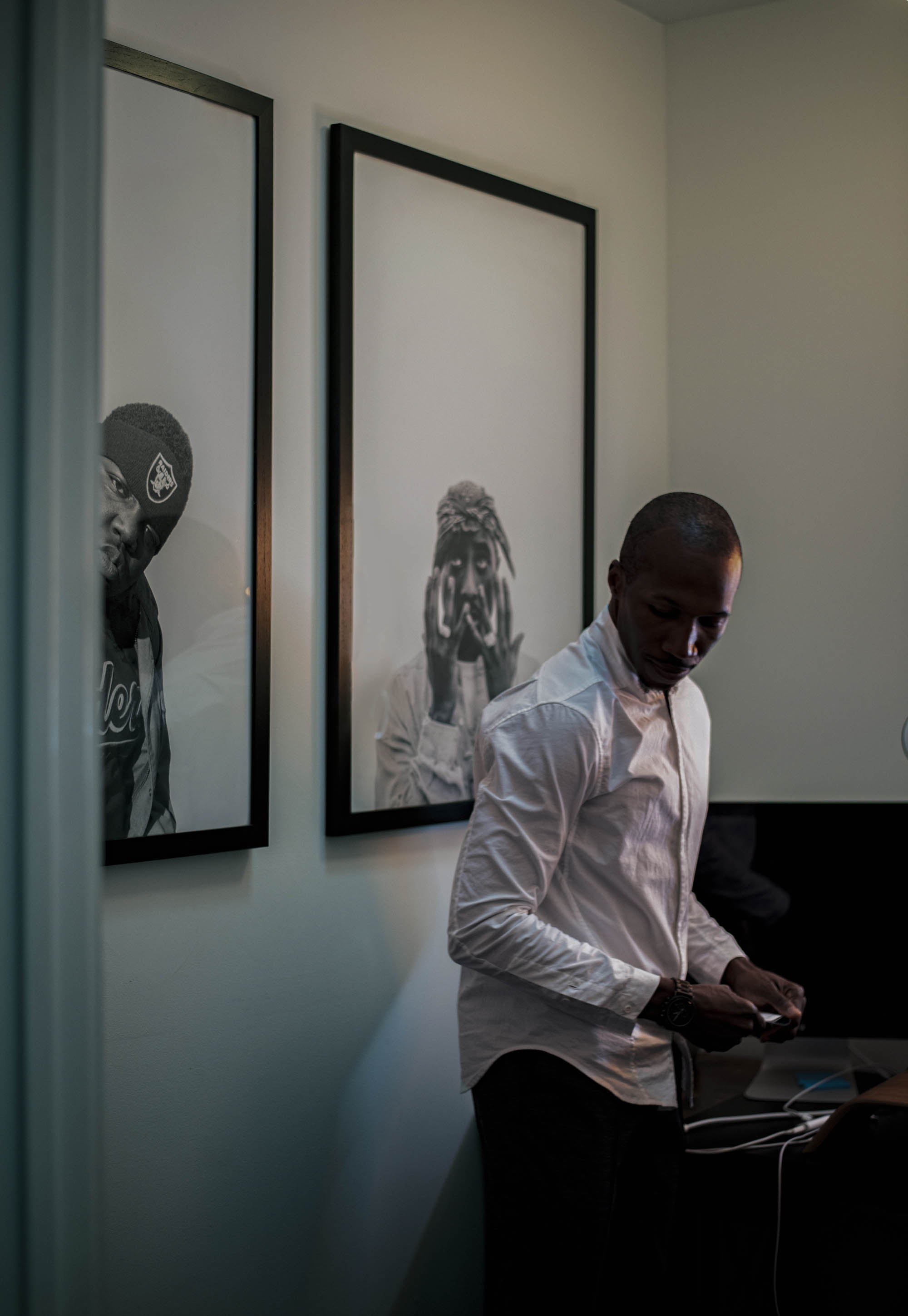

SU SANNI
I look at problems
as opportunities, instead of being
content with the way things are.
Su Sanni, 2022 AD
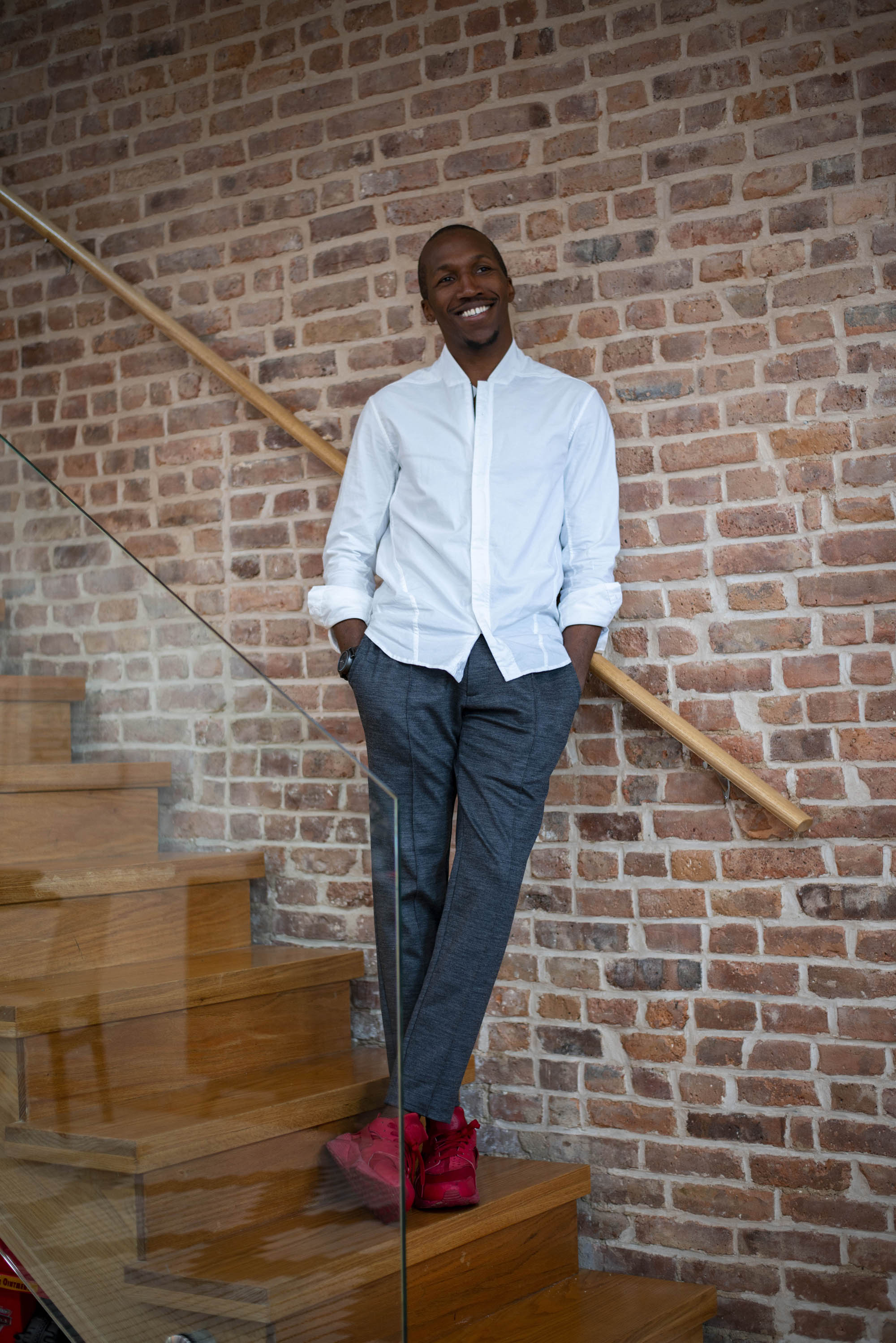
Su wears the Modena Shirt in White Oxford and Vanta Pant in Grey
The co-founder of Dollaride, social entrepreneur, and tech executive discusses his journey from football to starting multiple businesses, strategic exits, and keeping two feet on the ground.
All words by Su Sanni in conversation with Seneca.

Su wears the Modena Shirt in White Oxford and Vanta Pant in Grey
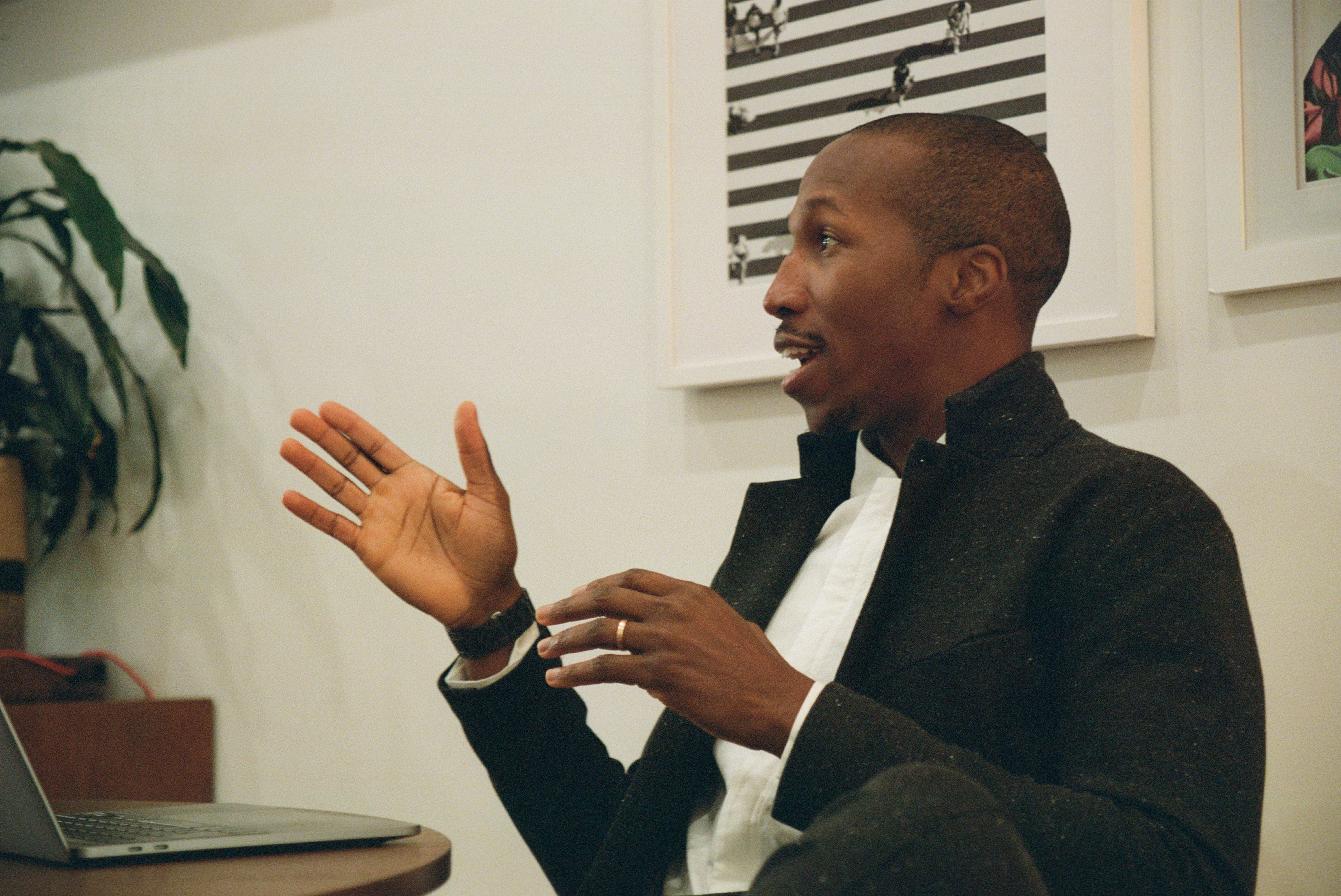
Su wears the Forma Jacket in Charcoal Donegal and Modena Shirt in White Oxford
WHEN I WAS AT BOSTON COLLEGE IN MY JUNIOR YEAR I REALIZED I WASN'T GOING TO THE NFL.
I was a student-athlete playing cornerback and safety on the football team, and also a pre-med major. Pre-med and football do not mix well.
I started getting more serious about two career tracks, psychology and finance, so I switched to a psychology major and took business classes.

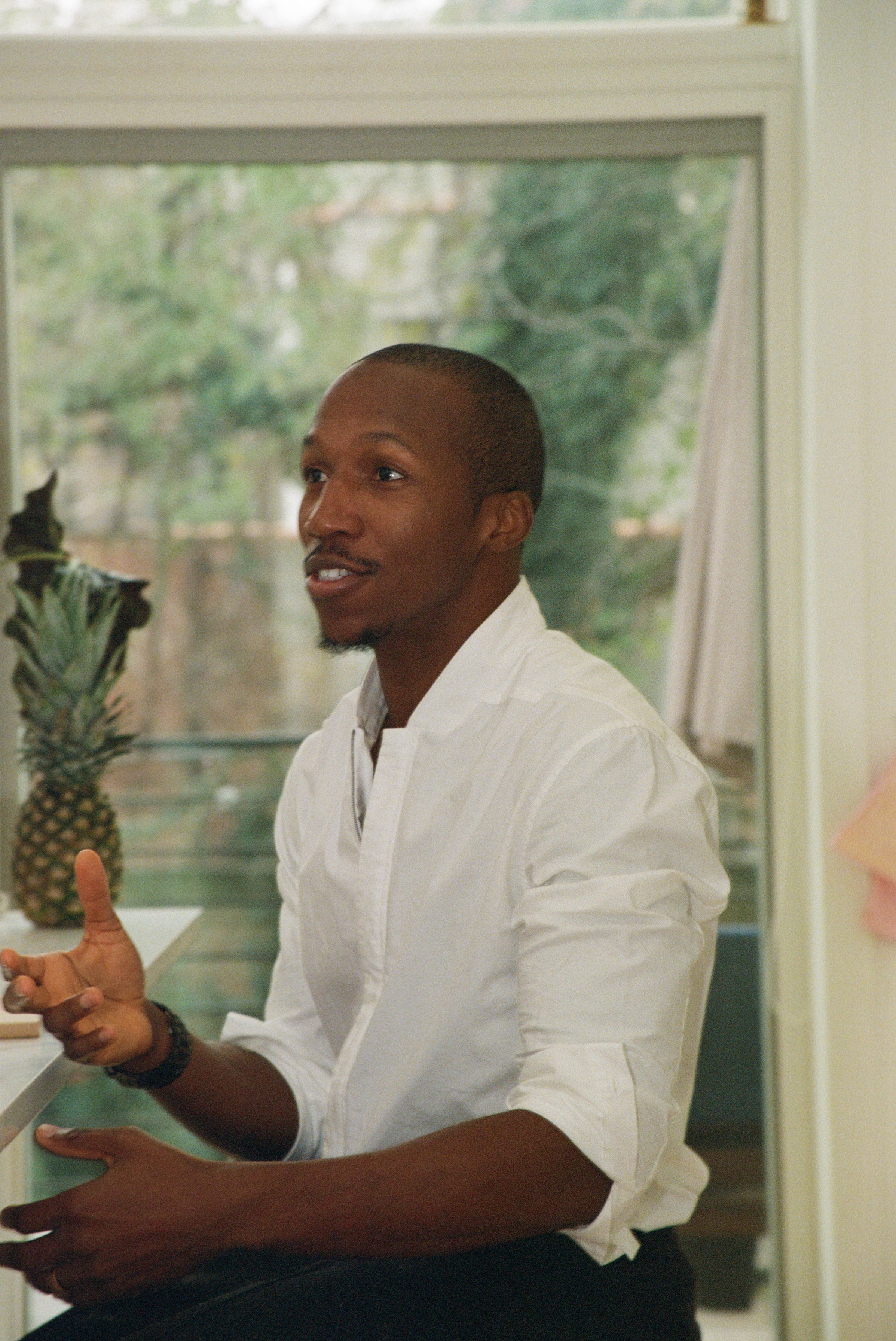
Su wears the Modena Shirt in White Oxford
MY FIRST JOB WAS IN INVESTMENT BANKING, BUT ON NIGHTS AND WEEKENDS I WAS WORKING ON MY FIRST VENTURE.

IN MY SECOND VENTURE, DESPITE THE SUCCESS, WE WERE SIX MONTHS AWAY FROM CLOSING.

Su wears the Aero Half Zip in Charcoal Donegal
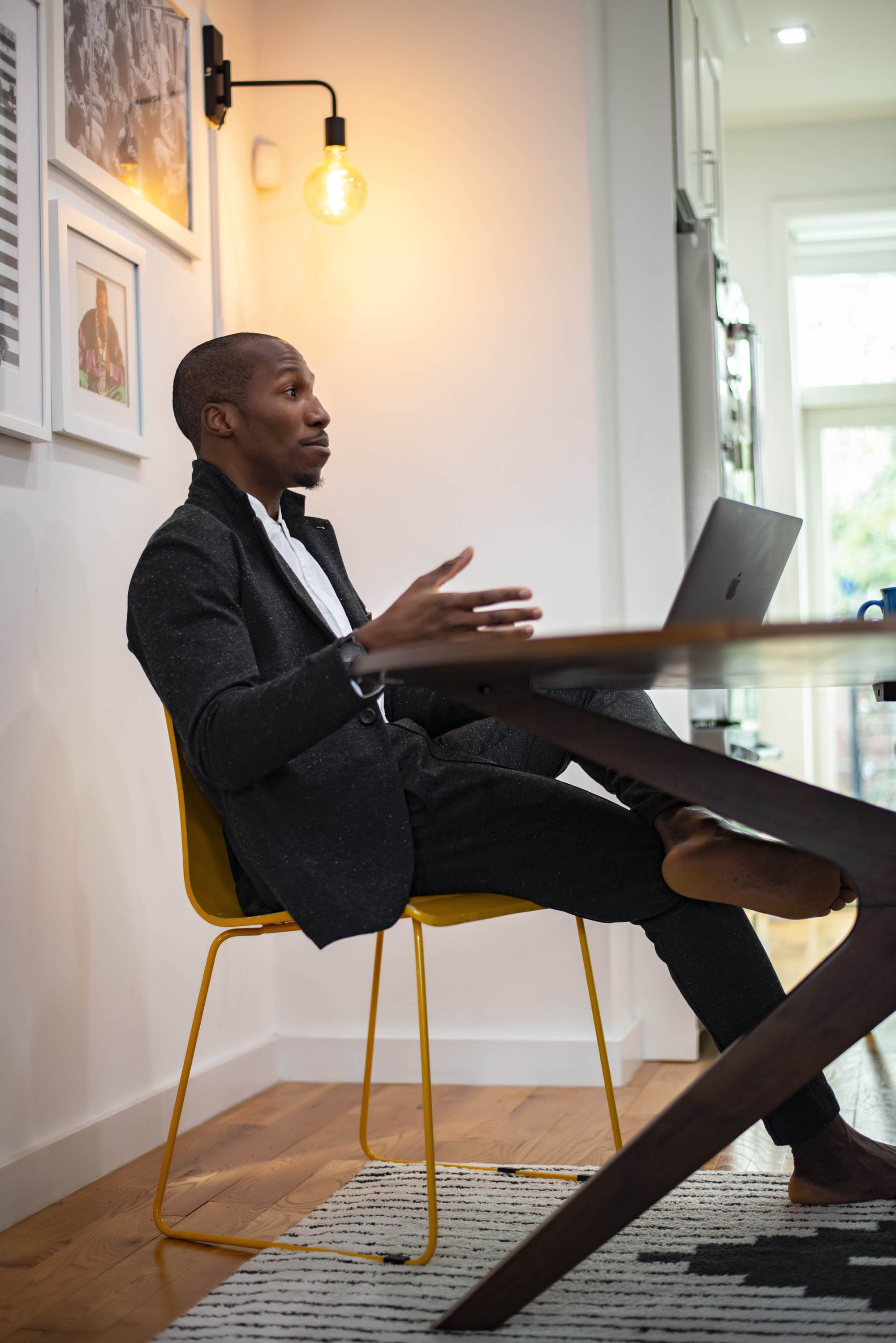
Su wears the Forma Jacket in Charcoal Donegal and Vanta Pant in Charcoal Donegal
THE DREAM IS TO CREATE ECONOMIC OPPORTUNITY THROUGH TRANSPORTATION.
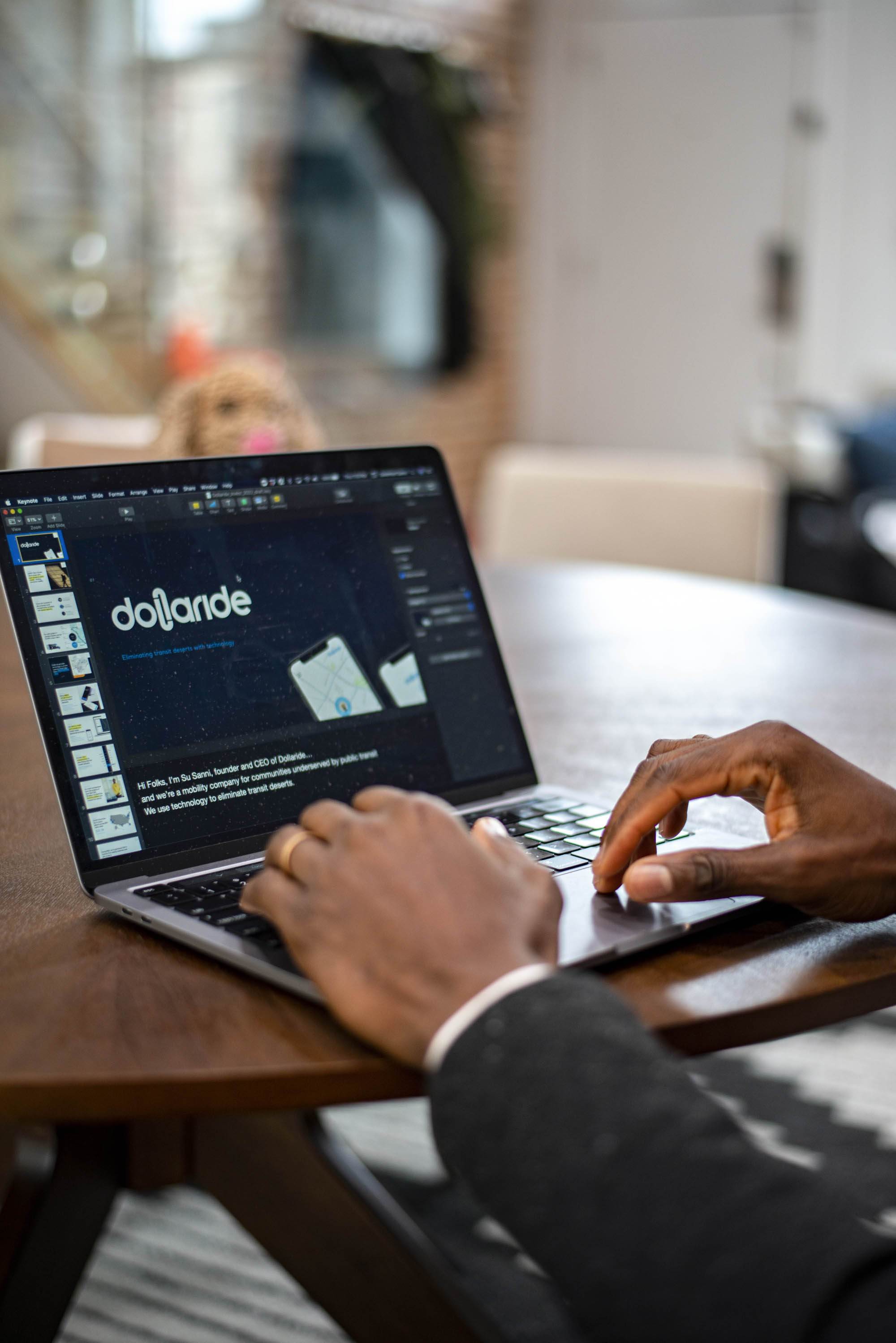
FOR THE CONCEPT OF MY CURRENT BUSINESS, I LEAN BACK ON MY UNCLE'S STORIES.
In the early 1980s, they noticed that there was this period where the Subway in New York continued to have strikes. Or for people who used the bus, the services were becoming inconsistent, unreliable. That would disenfranchise whole neighborhoods of people who couldn’t go to work.
The thing that my uncles knew how to do was drive. They thought, “let me buy a van and I'll pick up and drop off people to wherever they need to go, for a dollar.” And therein lies this concept around dollar vans. That started to catch on. The demand for transportation is ferocious, especially in these lower socio-economic areas that we call transit deserts.
TO CREATE CHANGE, GET CLOSE TO PEOPLE. WALK A MILE IN THEIR SHOES.
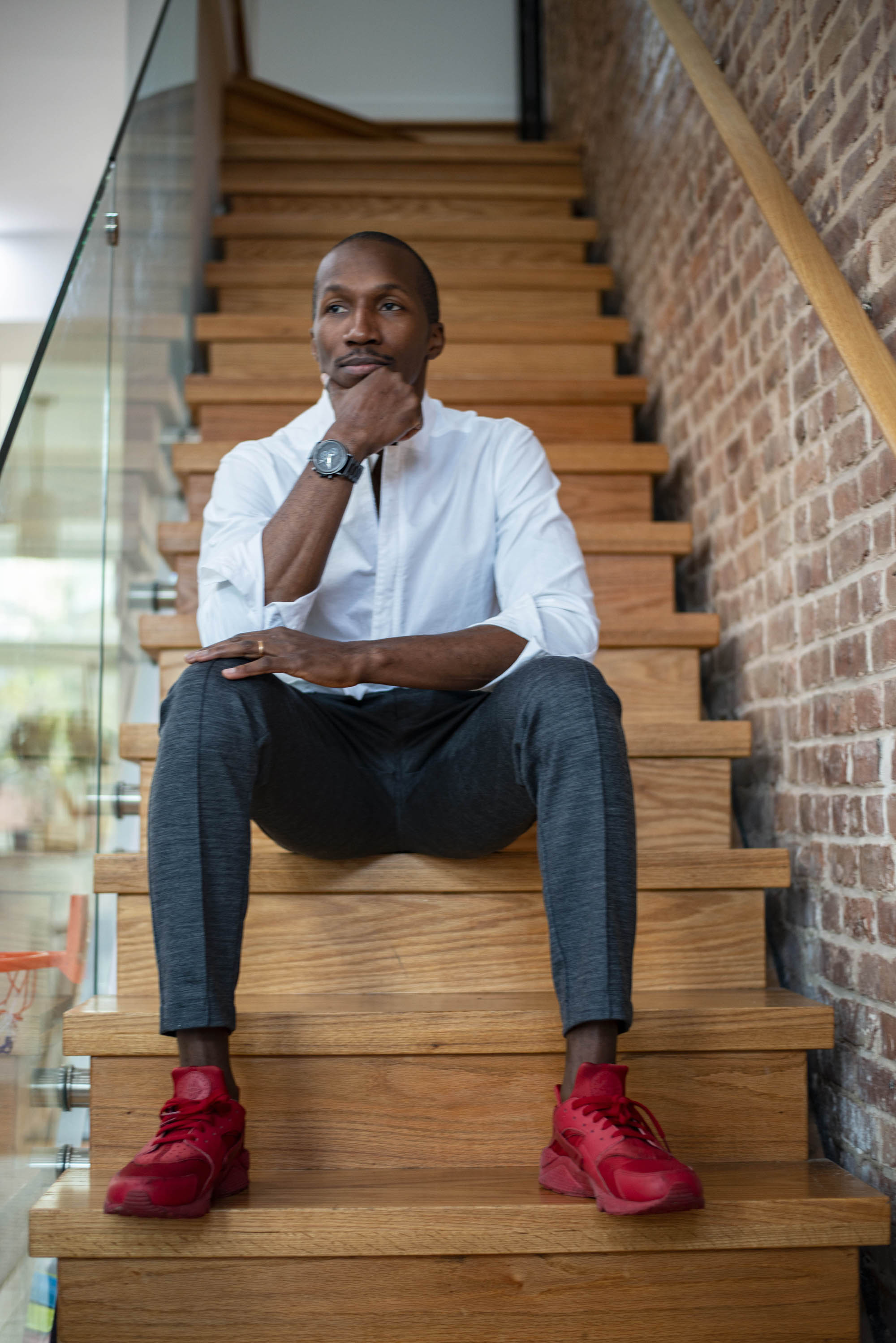
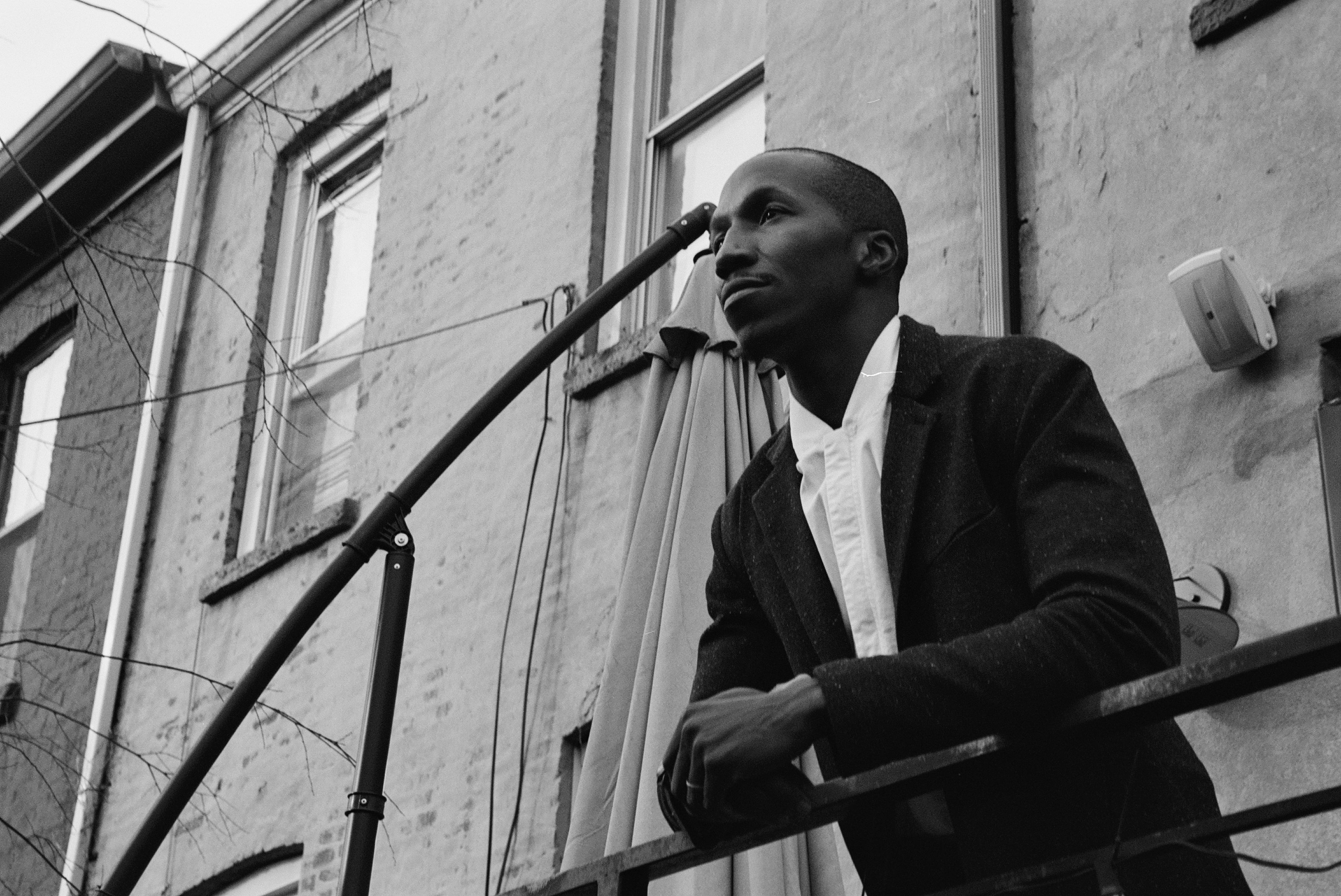
GET CLOSE TO PEOPLE.
WALK A MILE IN THEIR SHOES TO UNDERSTAND THEIR POINT OF VIEW.
Measurements. All garments are hand-measured for accuracy.
It may be helpful to compare these product measurements to a similar garment you already own. To do this, place the garment on a flat surface and take all measurements from the outside.
Modena Shirt
- S
- M
- L
- XL
- Chest
- 40"
- 42"
- 45"
- 47"
- Back Length
- 28"
- 28"
- 28 1/2"
- 28 1/2"
- Sleeve Length
- 24"
- 24 1/2"
- 26"
- 26 1/2"
- Shoulder Width
- 17 1/4"
- 17 3/4"
- 18 1/2"
- 19"
Lumen Shirt
- S
- M
- L
- XL
- Chest
- 39"
- 41"
- 44"
- 46"
- Back Length
- 28 3/4"
- 29 1/4"
- 30"
- 30 1/2"
- Sleeve Length
- 24 3/4"
- 25 1/4"
- 26 1/2"
- 27"
- Shoulder Width
- 17 1/2"
- 18"
- 18 1/2"
- 19"
Forma Jacket 2
- S
- M
- L
- XL
- Chest
- 36 1/2"
- 38 1/2"
- 41 1/2"
- 43 1/2"
- Back Length
- 28 1/2"
- 29"
- 29 3/4"
- 31 1/4"
- Sleeve Length
- 24"
- 24 1/2"
- 25"
- 25 1/2"
- Shoulder Width
- 17 1/4"
- 18"
- 19"
- 19 3/4"
Terra Jacket
- S
- M
- L
- XL
- Chest
- 40"
- 42"
- 45"
- 47"
- Back Length
- 28"
- 28 1/2"
- 29 1/4"
- 29 3/4"
- Sleeve Length
- 25"
- 25 1/2"
- 26"
- 26 1/2"
- Shoulder Width
- 18"
- 18 1/2"
- 19 1/4"
- 20"
Vanta Pant
- 30R
- 32R
- 32L
- 34R
- 34L
- 36R
- Waist
- 30"
- 32"
- 32"
- 34"
- 34"
- 36"
- Outseam
- 39"
- 39"
- 41.5"
- 39"
- 41.75"
- 40"
- Inseam
- 29"
- 29"
- 31"
- 29"
- 31"
- 29"
- Hem Opening
- 12.5"
- 12.75"
- 12.75"
- 13"
- 13"
- 13.25"
Vanta GPT
- 30R
- 32R
- 32L
- 34R
- 34L
- 36R
- Waist
- 30"
- 32"
- 32"
- 34"
- 34"
- 36"
- Outseam
- 40"
- 40.5"
- 43.25"
- 40.5"
- 43.25"
- 41"
- Inseam
- 30"
- 31.5"
- 33.5"
- 31.5"
- 33.5"
- 32"
- Hem Opening
- 13"
- 13"
- 13"
- 14"
- 14"
- 14"
Vanta Pro
- 30R
- 32R
- 32L
- 34R
- 34L
- 36R
- Waist
- 30"
- 32"
- 32"
- 34"
- 34"
- 36"
- Outseam
- 37"
- 37"
- 39.5"
- 39"
- 41.5"
- 40"
- Inseam
- 29"
- 29"
- 31.5"
- 30"
- 32.5"
- 30.5"
- Hem Opening
- 13"
- 13"
- 13"
- 13.25"
- 13.25"
- 13.5"
Cortina Longsleeve Knit
- S
- M
- L
- XL
- Chest
- 41"
- 43"
- 46"
- 48"
- Back Length
- 25 1/2"
- 26 1/2"
- 27"
- 27"
- Sleeve Length
- 23 1/2"
- 24 1/2"
- 25"
- 26"
- Shoulder Width
- 18 1/4"
- 18 3/4"
- 19 1/2"
- 20"
-
Still Unsure?
Email contact@thinkseneca.com with your typical size, height, and weight.
-
Returns or exchanges.
Try your purchase in the comfort of your own home and, if it’s not quite right, let us know and we’ll arrange a free exchange or return.
Measurements. All garments are hand-measured for accuracy.
It may be helpful to compare these product measurements to a similar garment you already own. To do this, place the garment on a flat surface and take all measurements from the outside.
Vanta Pant
- 30R
- 32R
- 32L
- 34R
- 34L
- 36R
- Waist
- 30"
- 32"
- 32"
- 34"
- 34"
- 36"
- Outseam
- 39"
- 39"
- 41.5"
- 39"
- 41.75"
- 40"
- Inseam
- 29"
- 29"
- 31"
- 29"
- 31"
- 29"
- Hem Opening
- 12.5"
- 12.75"
- 12.75"
- 13"
- 13"
- 13.25"
Vanta GPT
- 30R
- 32R
- 32L
- 34R
- 34L
- 36R
- Waist
- 30"
- 32"
- 32"
- 34"
- 34"
- 36"
- Outseam
- 40"
- 40.5"
- 43.25"
- 40.5"
- 43.25"
- 41"
- Inseam
- 30"
- 31.5"
- 33.5"
- 31.5"
- 33.5"
- 32"
- Hem Opening
- 13"
- 13"
- 13"
- 14"
- 14"
- 14"
Vanta Pro
- 30R
- 32R
- 32L
- 34R
- 34L
- 36R
- Waist
- 30"
- 32"
- 32"
- 34"
- 34"
- 36"
- Outseam
- 37"
- 37"
- 39.5"
- 39"
- 41.5"
- 40"
- Inseam
- 29"
- 29"
- 31.5"
- 30"
- 32.5"
- 30.5"
- Hem Opening
- 13"
- 13"
- 13"
- 13.25"
- 13.25"
- 13.5"
-
Still Unsure?
Email contact@thinkseneca.com with your typical size, height, and weight.
-
Returns or exchanges.
Try your purchase in the comfort of your own home and, if it’s not quite right, let us know and we’ll arrange a free exchange or return.